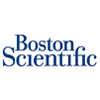
Boston Scientific (NYSE:BSX) touted the results of a comparative analysis of patients treated with the subcutaneous implantable defibrillator, reporting that its lead-free ICD may be safer for patients.
The lead-free S-ICD system, which uses electrodes implanted beneath the skin rather than leads connected to the heart, resulted in fewer major lead and surgical complications when compared with traditional transvenous ICDs, according to an analysis presented this week at the 2013 Europace meeting of the European Heart Rhythm Assn.
"The benefits of the S-ICD System leaving the heart and vasculature untouched are becoming more evident," study presenter Dr. Jens Brock Johansen said in prepared remarks. "These are very exciting outcomes, since implanting an S-ICD System is relatively new compared with implanting transvenous ICDs. Having supportive outcomes in the acute phase is incredibly important and I am optimistic about the potential benefits the S-ICD System may have in the long term."
Researchers compared outcomes with the S-ICD to outcomes in patients treated with both single and dual chamber transvenous implantable defibrillators. The S-ICD study reported a 1.4% rate of "major lead complications," compared with 4.3% in single chamber TV ICDs and 5.4% for dual chamber TV ICDs. Major lead complications were defined as lead-related re-intervention, pneumothorax, cardiac perforation, according to a press release.
The S-ICD also resulted in a 7.9% rate of surgical complications, compared with 11.5% for the single and dual chamber TV ICDs. There was no significant difference in the rate of pocket revision or major hematoma among the devices, Boston Scientific reported.
The data came from Boston Scientific’s EFFORTLESS S-ICD international post-market registry as well as from a the Danish ICD registry of single and dual-chamber implantations. More than 1,000 patients were analyzed in total, according to a company statement.
The findings were more good news for Boston Scientific’s 1-of-a-kind device, which was also recently the subject of guidance from the U.K.’s National Institute for Health & Care Excellence.
"The NICE interventional procedure guidance on the insertion of the S-ICD System is a welcome step in the development of this new therapy," U.K. cardiologist Dr. Andrew Grace said on behalf of Boston Scientific. "The guidance complements the growing evidence supporting its application in a larger patient pool."
Boston Scientific acquired the S-ICD technology last year with the acquisition of Cameron Health, a deal valued at up to $1.35 billion. The device has been on the European market since July 2009 and was approved by U.S. healthcare regulators in September 2012.

